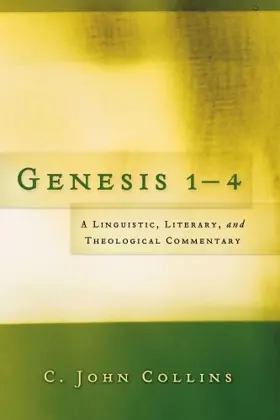

Genesis 1-4: A Linguistic, Literary, And Theological Commentary
Pages
318 pages
Publisher
P&R Publishing
Published
2/28/2006
ISBN-13
9780875526195
Reviews
I think this is my favorite, complete, commentary in Genesis. Collins' linguistic, literary analysis is better than all the other commentaries I have combined (Wenham, Walton, Sailhammer, Boice). The only criticism is that it's not written in the way I tend to preach, in an expository progression, but rather addressing major themes and ideas. Therefore, you have to make good notes in the margins or flag pages so you know where to go when referring back for information.
Phillipsburg, N.J.: P&R Publishing, 2006. Pp. xiv + 317. Paper. $17.99. ISBN 0875526195. Philippe Guillaume University of Bern Bern, Switzerland The subtitle of this work, A Linguistic, Literary and Theological Commentary, sets it as part of a quest for academic recognition by evangelicals illustrated by the recent launch of the Journal of Theological Interpretation (Eisenbrauns). The aim is to return to the Bible as Christian Scriptures to reverse the ebb started by J. S. Semler, who fostered rational investigation of the Bible away from the polemic of dogmatic theology (see further J. B. Green, “The [Re]Turn to Theology,” JThI 1/1 [2007]: 1–3). In a similar way, Collins insists upon an academically rigorous treatment of the first chapters of Genesis with the integration of their impact on life today. Since the target audience of this commentary is pastors and students, the amount of footnotes and engagement with rival hypotheses is minimal in order to produce something that people would read. Hence the volume dispenses of the characteristics of academic exegesis. Instead, Collins’s vision of academic rigor includes a literary-theological method informed by contemporary discourse analysis. Chapter 2 presents this method as the most important contribution to the field. It is said to allow modern readers to read the text the way a competent reader in the original audience would have read it, to the best that we can reconstruct that competence (5).
[Full Review]

